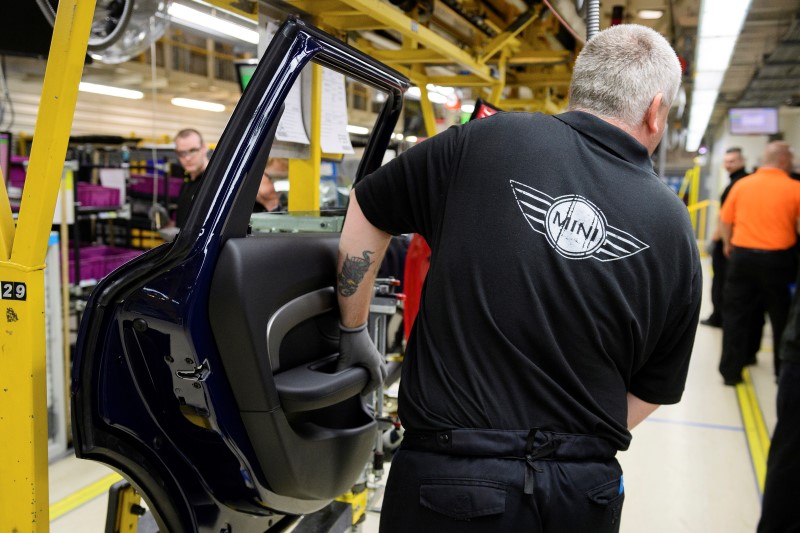By Ana Nicolaci da Costa
LONDON (Reuters) - Optimism among British manufacturers fell in July to its lowest level since early 2009 after Britain's decision to leave the European Union, a survey showed on Monday, even as output rose in the last three months.
Quarterly numbers from the Confederation of British Industry showed total orders in the three months to July rose to +9 from -4 in April, the highest in a year and well above a historical average of -1.
But the quarterly business optimism balance plummeted to -47 from -5, the lowest since January 2009 - around the nadir of the global financial crisis.
The survey adds to signs the Brexit vote might be starting to take a toll on Britain's already slowing economy, following a survey from Markit that suggested business activity is declining at the fastest rate since 2009.
"In short, the (CBI) survey adds to evidence that the economy is heading for a recession," said Samuel Tombs, economist at Pantheon Macroeconomics.
"The business optimism balance is a good leading indicator of manufacturing output and points to a major slump in production ahead."
The gloomy outlook among manufacturers will no doubt catch the eye of Bank of England officials, who are trying to decide how aggressively to act at their August policy meeting to cushion the shock of the referendum vote.
The CBI survey is regularly cited in the Bank's quarterly economic forecasts, the next of which are due on Aug. 4.
The CBI's monthly numbers also suggested tough times may lie ahead for manufacturing, which accounts for around 10 percent of British economic output.
The total order book balance from its monthly industrial trends survey fell to -4 in July from -2 but remained well above a long running average of -15.
But expectations for output over the next three months fell to the lowest level this year.
"Manufacturers picked up the pace over the second quarter, with output growing solidly," Rain Newton-Smith, CBI chief economist, said.
"But it's clear that a cloud of uncertainty is hovering over industry, post-Brexit. We see this in weak expectations for new orders, a sharp fall in optimism and a scaling back of investment plans."
The manufacturing sector has struggled to contribute to economic growth in recent quarters, even before the result of the referendum.
While the sharp fall in sterling since the Brexit vote could boost the sector by making British goods more attractive to foreign buyers, any benefits are likely to be offset by higher import costs.
While export order book balance fell to its lowest since January, the survey's measure of expected prices rose to its highest since February 2015.
A survey from data company Markit last week showed business activity among manufacturing firms fell this month at the fastest pace since February 2013.

A separate survey from the EEF manufacturing trade body showed last week confidence in the sector about the business outlook was at its lowest in at least two years, with 29 percent of firms expecting domestic orders to fall over the next six months.